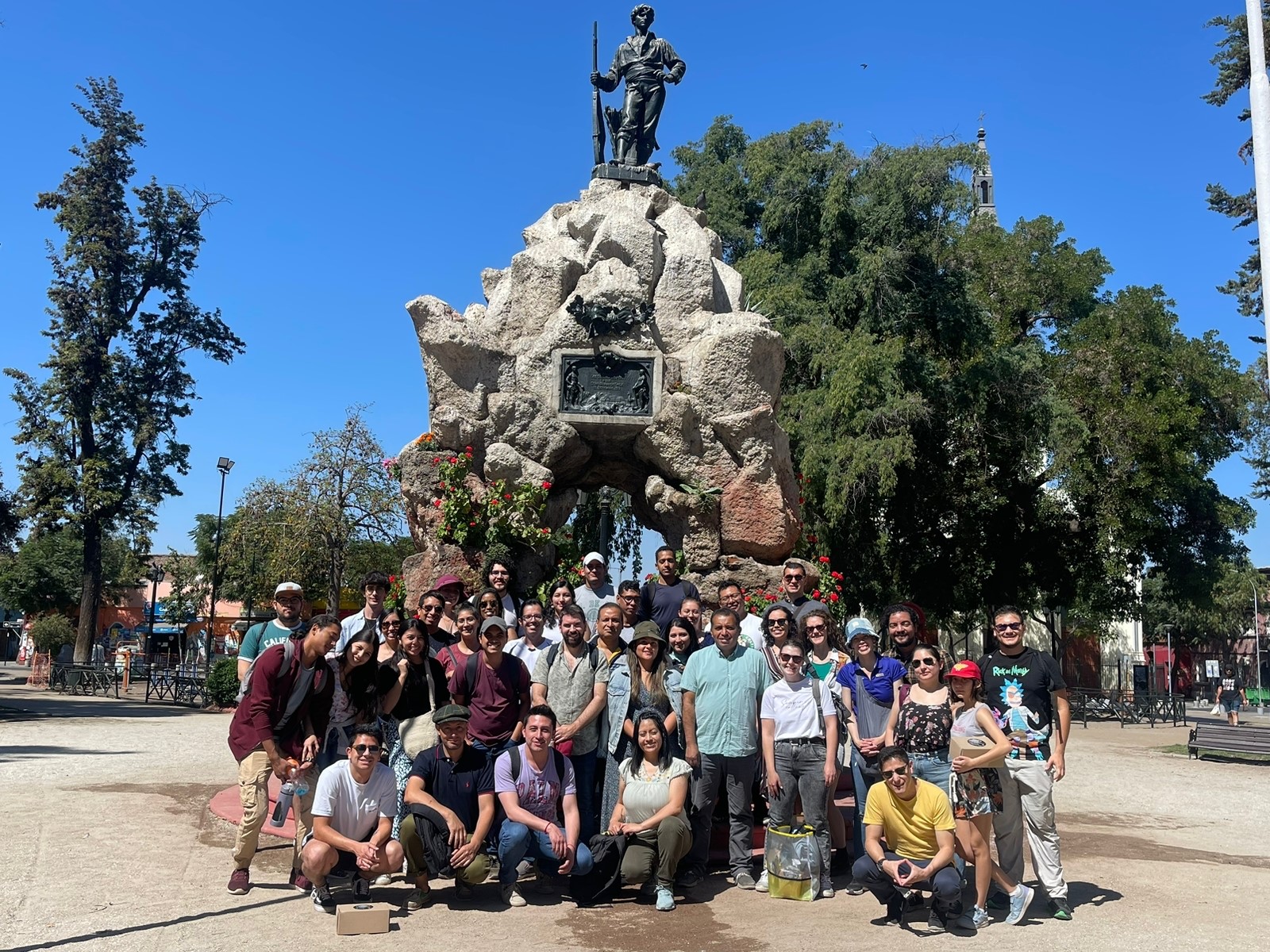The Graduate School welcomes our new 2023 UC doctoral students
Abril 26, 2023
The Graduate School of the Office of the Vice President for Research welcomed the new students who will commence their doctoral studies at our university.
The new students, who will form part of our various UC doctoral programs, were received at a welcoming ceremony officiated by the president of our university, Mr. Ignacio Sánchez, who wanted to greet the over 200 people who are commencing their studies this year. “In relation to 2022, this year, we have more students who chose to pursue their doctoral degrees at our university. There are approximately 260 students who will start their studies this year, with 30% of them being foreigners; we have representatives from Brazil, Colombia, Costa Rica, Cuba, Ecuador, Spain, the USA, France, Honduras, Iran, Italy, Mexico, Panama, Paraguay, Peru, the United Kingdom, and Venezuela,” he stated.
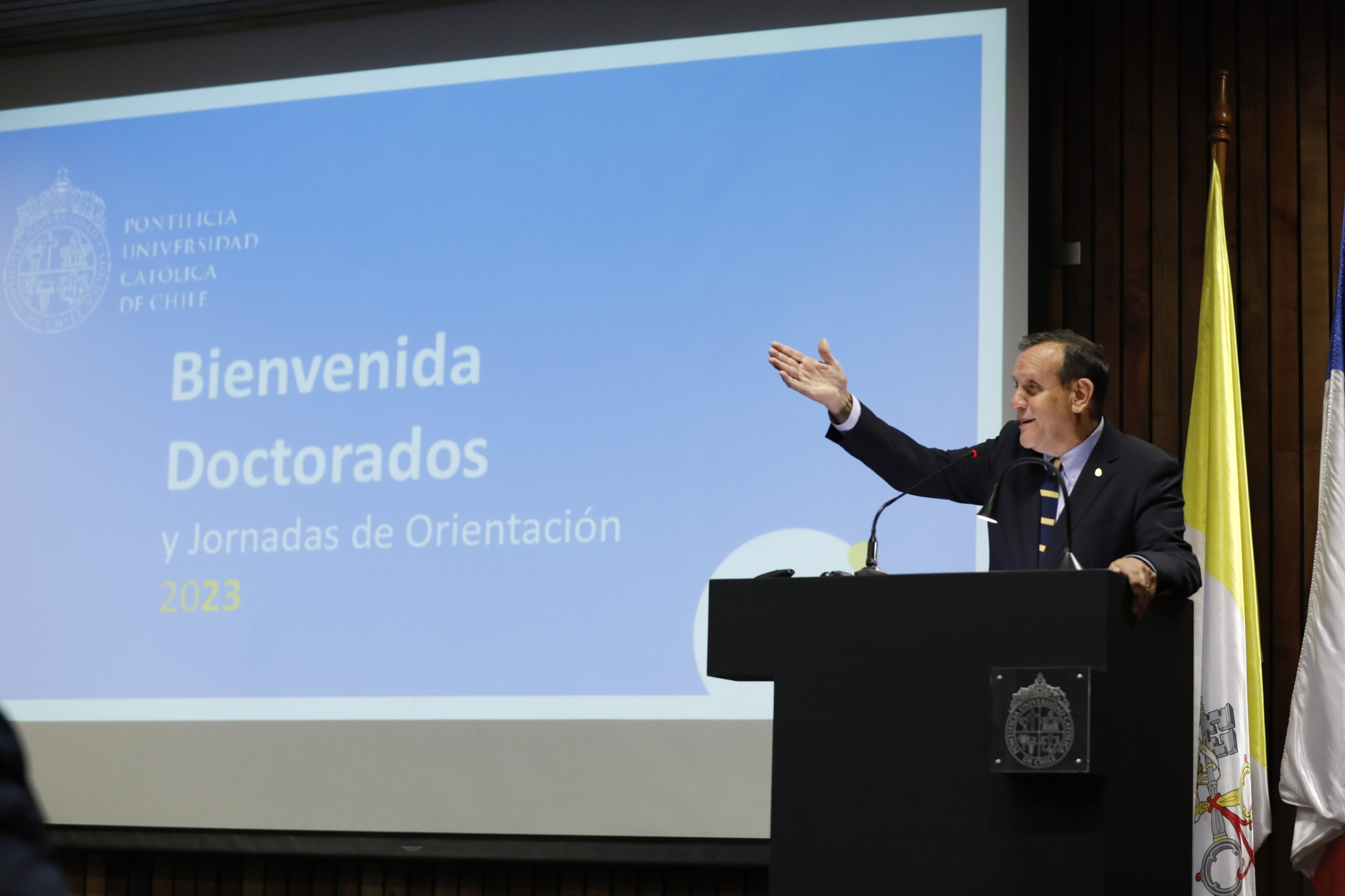
In addition, he pointed out that “we will ensure that everyone feels comfortable during their time studying with us, as we firmly believe that their contributions will have an impact beyond the academic and investigative aspects of their doctoral training. Today we receive all the different inputs that you bring to our university, and since we are becoming more globalized every day, this helps us grow as a community. We know that the work you will perform here will be relevant to our entire country and society, so we want to encourage you to adapt your research to local people’s needs to improve their quality of life. We know that this will be a joint effort between authorities from the university, the authorities from the public and scientific spheres, your thesis supervisors, and especially you. As the president, I assure you that we want to welcome and support you all so you have a rewarding experience that accompanies you throughout your lives”.
The Vice-president for Research, Pedro Bouchon, also welcomed our new students. In his speech, he emphasized the main aspects that reflect our university’s commitment to its students’ education. He mentioned the opportunities for field research at Centres of Excellence and the Network of Centers and Field Research Stations. Likewise, he highlighted the various services offered by the university, such as the Institutional Guidelines for Good Practices in Thesis Supervision, the Transversal Skills Program –aimed to strengthen the students’ chances for insertion into their work fields– and the many international offerings aimed to develop globalized networking skills, all of which are critical elements for ensuring the pledge to our students’ formation as quality researchers.
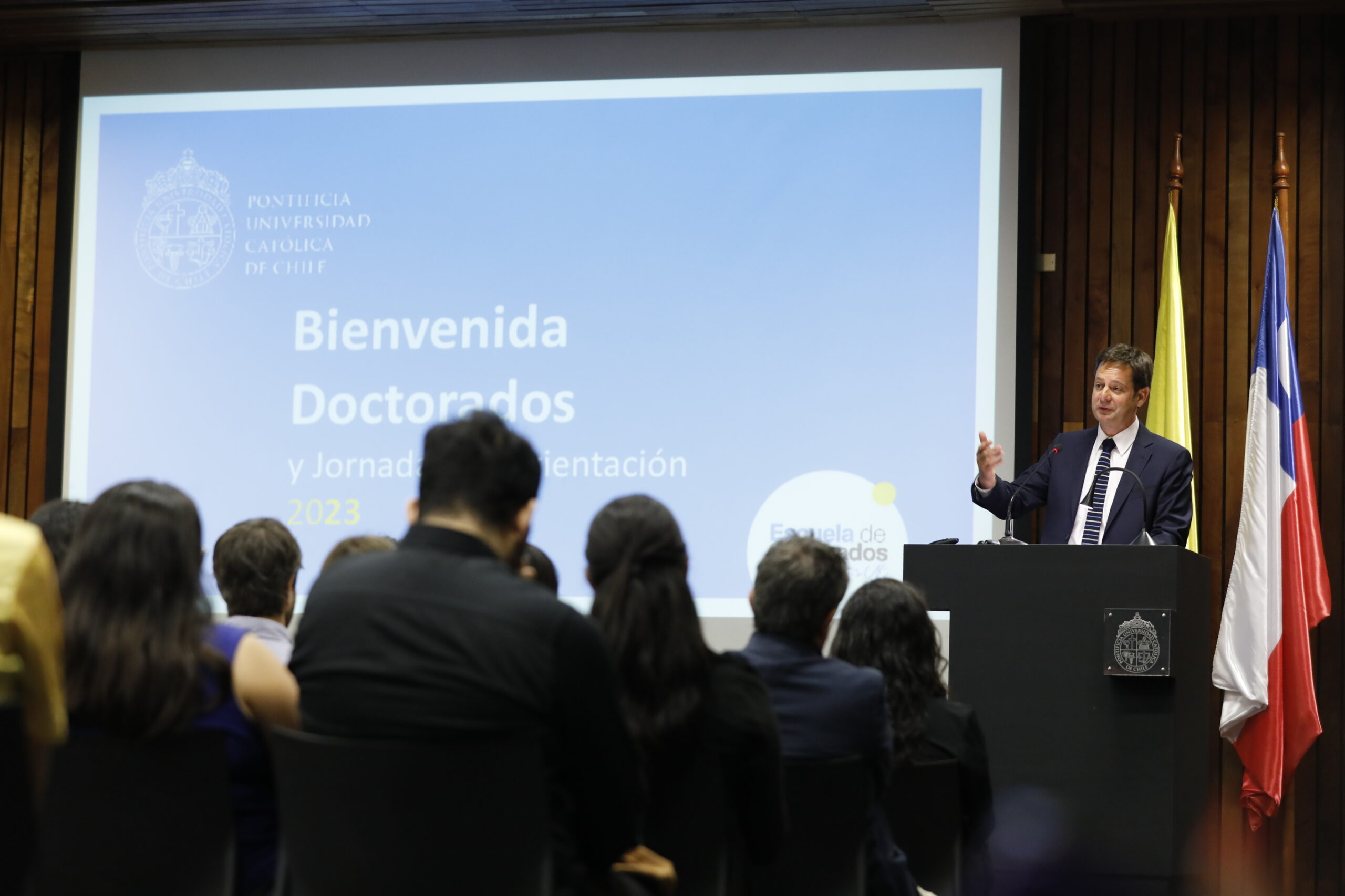
This welcoming had the special participation of Francisco Schwember –UC Doctor in Educational Sciences, faculty member of our School of Arts, and instructor at our Master’s Program in Cultural Heritage– who presented the keynote speech titled “Innovation and transdisciplinarity in times of crisis: an approach from Education and Visual Arts studies”. Through actual images, Dr. Schwember showed the attendees the relationship between art, education, and native peoples’ knowledge, based on a transdisciplinary approach that addresses action-research as a collective work methodology.
Lastly, the director of the School of Graduates, Diego Cosmelli, introduced the various instruments and services students can access at UC and the Graduate School’s development areas. The attendees asked and clarified many of their doubts, mainly related to our VRI Scholarships and the English Training Program offered for all the programs.
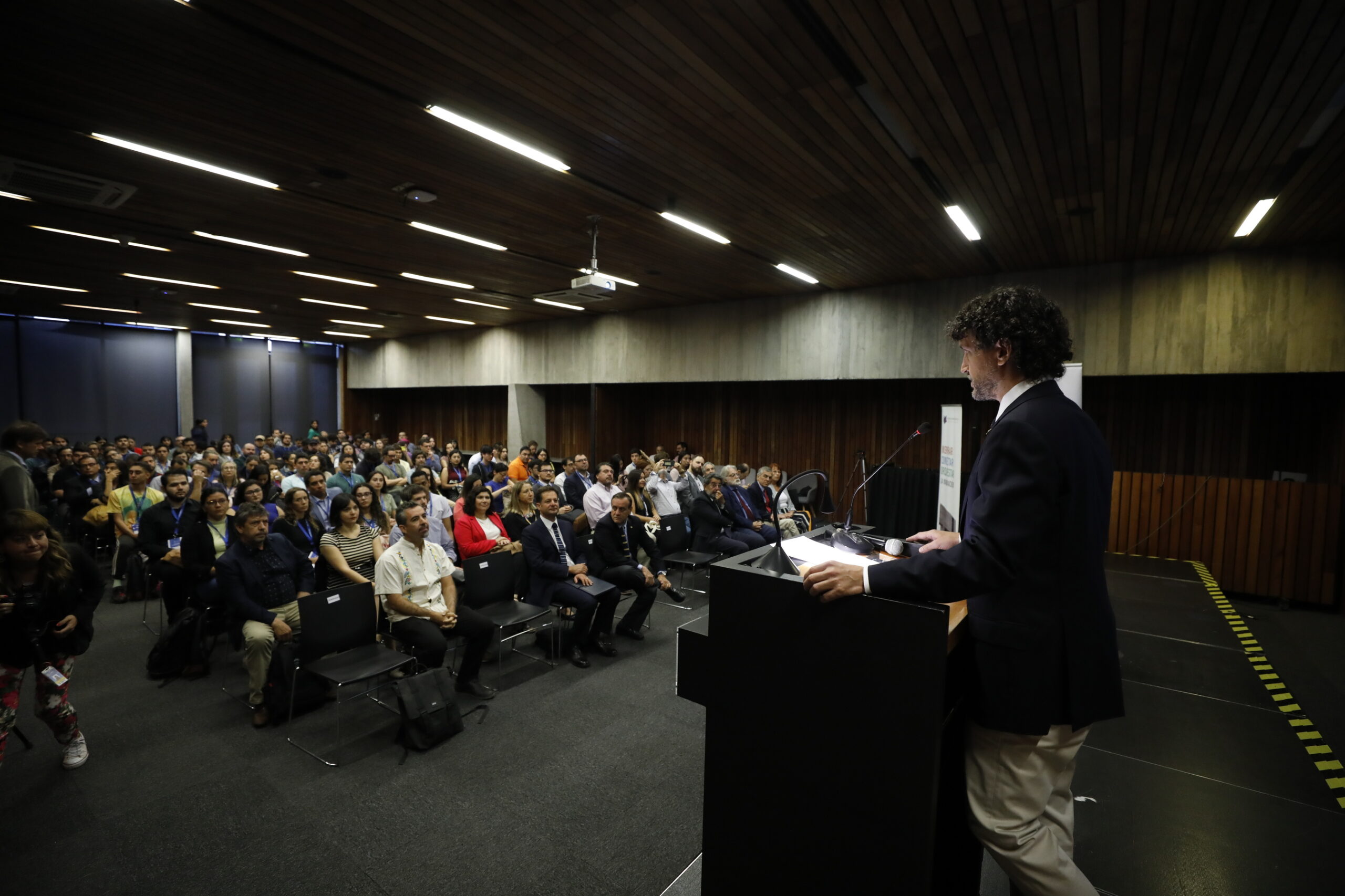
Diego Cosmelli emphasized that “we are here to support you; we know the challenges involved in starting a new doctoral program and, in the case of foreign students, what it means to be living and studying abroad. That is why we are here to help you through all these different services, workshops, and activities, which will be set throughout the year to guarantee your studies’ satisfactory fulfillment”.
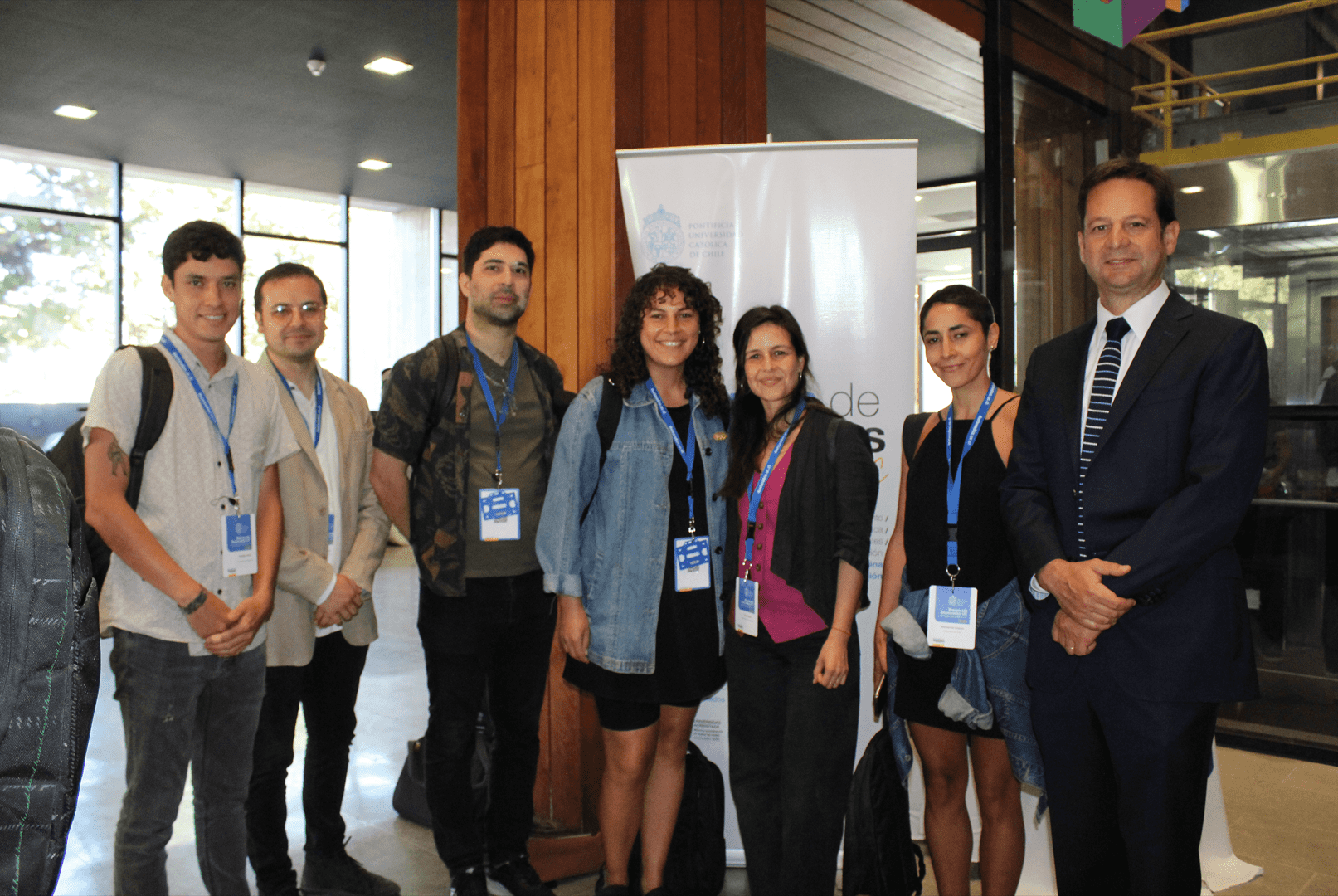
Orientation sessions: discovering the assisting tools available for doctoral students
The activities continued with our Orientation Sessions, both throughout Thursday afternoon in an in-person format and on Friday in a remote format. These sessions were carried out with great success, powered by the alliance with the university’s various service and assistance units, which shared relevant information on helpful topics for the schooling process of our new students. Among others, subjects relating to research opportunities at the Centres of Excellence and the Network of Centres and Field Research Stations, the UC Library system with its Services and Workshops, the Prevention and Support in Case of Sexual Violence Unit, the Support Program for the Supervision of Doctoral Thesis, the Student Health and Well-being Unit, and the Industry Thesis program, were highlighted.
Traditionally, the Orientation Sessions concluded with a conversation between our newcomers and a group of students in the final years of their doctoral programs and graduated students. During this activity, everyone shared different experiences, learnings, and situations researchers will face throughout their doctorate studies. Our guest students recalled the most challenging and rewarding moments during their time with us, commenting on the different career paths they have taken; for example, they spoke about working outside of academia, thus motivating new students to seek and take advantage of the many opportunities for professional development offered by our university.
Lastly, to finish the welcome activities, we offered an exclusive breakfast and tour of Santiago for international students and their families, achieved with the support of the Office of the Vice President for International Affairs. This tour occurred at Parque Quinta Normal, followed by a visit to Barrio Yungay. Counting more than 30 participants and their relatives, everyone enjoyed themselves by sharing their experiences with starting their doctoral studies as international students.
